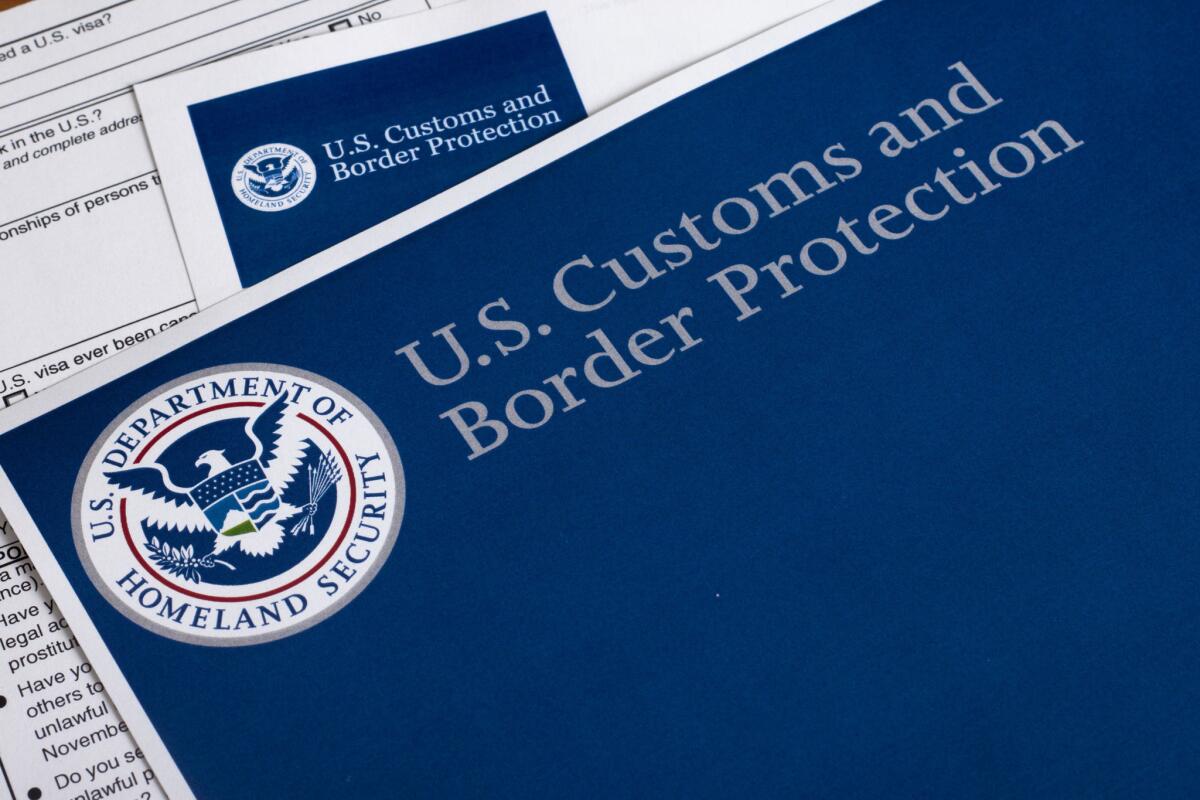Global Entry program turns this traveler down, then reconsiders--and here’s why

- Share via
My husband and I are both 65, and we are frequent travelers outside of the U.S. We both applied for the Global Entry program, and I was approved. My husband, however, was denied, he was told in a letter in May, because he had two incidents on his record from 1968 and 1970. The first was a shoplifting arrest that was the result of a misunderstanding, and the charge was dropped. The second was a petty theft charge: He and his college roommate took a chair from a university dumpster to put in their room. They were put under supervision for five months and told that their record would be expunged. My husband was asked to provide Global Entry with documentation of these outcomes. For the first incident, the clerk of Cook County, Ill., provided a letter saying the records for these types of petty offenses are destroyed after 15 years. For the second incident, we provided a letter from the Chicago Police Department with respect to the supervision. Since that time, my husband has had a spotless record. We appealed the denial decision in June. We heard nothing, so we sent a follow-up on Aug. 3. We still have not heard anything, and the Global Entry office in L.A. tells me they have nothing to do with appeals. There is no phone number or email, only an address for U.S. Customs and Border Protection in Williston, Vt.
Name withheld
Los Angeles
Answer: Answer: About a week after we asked Customs and Border Protection about this application, the husband received a letter saying his application was approved.
Might be coincidence. Might not. But the important point is that this man now will be able to use a Customs kiosk when he returns from travel abroad and, as a bonus, enjoy life in the fast-through-security-lane at Transportation Security Administration’s airport checkpoints.
Those are the privileges you get for five years when you pay your $100 and go to an interview with Customs about your application. You can read more about Global Entry at www.lat.ms/24mtGbH.
So far, the program has about 2.8 million members. It receives 70,000 to 80,000 applications a month. Of those applications, about 1% are denied.
The husband told me that at his interview he was asked if he had ever been arrested. He said no. He said the agent said, “Are you sure about that? We’ll come back to that.”
When the issue was revisited, the husband explained what had happened.
He later received the letter denying his application.
Run-ins with the law can follow you even if you have discharged your responsibilities. I learned that from two other readers who shared their stories with me. Both were stopped at Customs upon returning to the United States because of arrests more than 30 years earlier.
One had been charged with drug possession; the case was dismissed. The paperwork documenting his case had long been destroyed, so getting it expunged might have been a challenge. This is a fellow who had retired, by the way, from a long career serving and protecting the public.
The other reader was detained upon returning by car from Canada. He had once been arrested on a weapons charge, had made restitution and never had another incident.
Here’s the most disquieting part: How, where and why is this information available, especially if the court records aren’t?
The answer, a Customs official told me, may be an FBI database or it could be fingerprints you provide.
We can’t know for sure where this man’s information came from because, another Customs official told me in an email, “The Privacy Act prohibits U.S. Customs and Border Protection from providing information regarding individual travelers.”
I understand that, although the husband provided me with the documentation he gave Customs so I can clearly see his indiscretions, if they were, indeed, that. He and his wife say his record since has been spotless.
The Customs official’s email went on to say, “If the reader feels his Trusted Traveler application was denied due to inaccurate or incomplete information, then he may provide additional documentation to the CBP Trusted Traveler Ombudsman and request reconsideration. This link provides more information about how to request a review of a Trusted Travel Program denial.”
I explained that he had already done that.
Now what?
Apparently, it is waiting. A line on the Global Entry website said an appeal could take “months,” and when I asked Customs how many months that meant, the answer was as much as eight months. You can try emailing the ombudsman.
If 1% of applications are denied, that means 700 to 800 each month require a second look.
Staff has been added in the years since Global Entry started to deal with appeals of denial, which is an improvement. It used to be that any offense was an automatic denial, no exceptions. Now there is a chance you can explain and/or Customs will exercise some critical thinking.
The husband was philosophical about his application, he said in a phone conversation before Customs reversed its decision. “This [denial of Global Entry] isn’t the worst thing in the world. My life is not threatened. I have plenty to be thankful for. If this is the government I have, I guess I can live with it.”
And, he added, “I think it’s human nature to look at things that aren’t working and figure out a solution.”
Maybe Customs is on the path to doing that.
Have a travel dilemma? Write [email protected]. We regret we cannot answer every inquiry.
Sign up for The Wild
We’ll help you find the best places to hike, bike and run, as well as the perfect silent spots for meditation and yoga.
You may occasionally receive promotional content from the Los Angeles Times.




